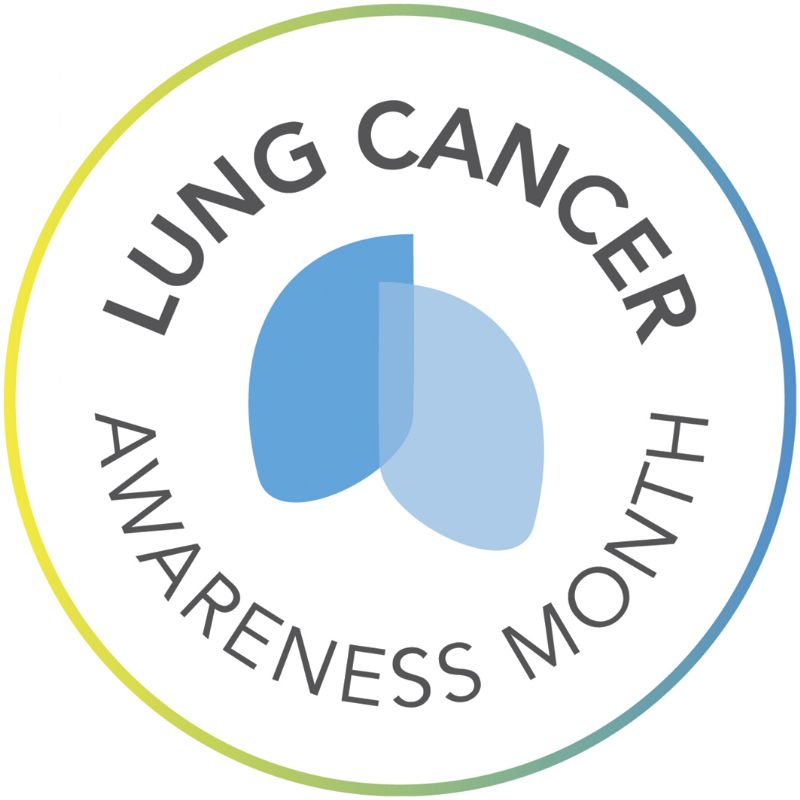- Home
- News, Articles & Reviews
- All Health & Beauty
- Looking Good, Feeling Great
- Medical Health
- Mirror Mirror on the Wall
- Style & Fashion
- General
- Vintage & Sustainable Fashion
We are hiring! Please click here to join our growing magazine delivery team in Gloucestershire!
Areas
Health & Beauty
Archive

Lung Cancer Awareness Month
All Areas > Health & Beauty > Medical Health
Author: Holly Hannigan, Posted: Thursday, 24th October 2019, 09:00
Lung cancer is the UK’s biggest cancer killer. It is the most common cause of death from cancer for both men and women, claiming almost 35,000 lives a year.
Early detection of lung cancer makes it more treatable, so encouraging people to recognise symptoms, such as a persistent cough, and see their doctor sooner could save lives.
As a child I hated my dad smoking. I was terrified he would get lung cancer and die before he could see me get married or have children of my own.
Your risk increases the more you smoke
Around 90% of cases occur in people who smoke or who used to smoke. The risk of developing lung cancer increases with the number of cigarettes and how long you have smoked for. After 10 years of stopping smoking your risk of lung cancer falls to half that of a smoker.
Breathing in other people’s smoke over a long period can also increase your risk of getting lung cancer. Other environmental factors, such as exposure to asbestos, can increase the risk as well.
Lung cancer usually affects people over the age of 60, and while younger people can develop this type of cancer, it is rare.
Often you won’t have any symptoms until a tumour becomes quite large. This means it might only be discovered when you have an X-ray or scan for a different reason.
As the condition progresses, you may experience some of the following symptoms:
• A cough
• Feeling out of breath
• Chest pain
• Feeling tired
• Appetite loss
• Weight loss
• A hoarse voice
• Blood in your mucus or phlegm
If your doctor thinks you may have lung cancer, you’ll be referred to a special clinic at the hospital called the rapid access clinic or urgent cancer clinic. If you live in England, you should see a specialist within two weeks of referral. The specialists may then ask for additional tests such as:
• CT scan
• Biopsy
This is when a sample of tissue is taken from the tumour
• Bronchoscopy:
A thin, flexible telescope called a bronchoscope is passed through your nose or mouth and down your windpipe. If the tumour is visible, your doctor can take a sample.
• Endobronchial ultrasound (EBUS):
This is similar to a bronchoscopy, but has an ultrasound scanner in the tip. This is passed into the windpipe through the mouth. It allows the doctor to scan and take tissue samples of lymph nodes in your chest.
• PET-CT scan
In the past 10 years there has been a lot of progress in lung cancer treatments. People are usually given more than one treatment at a time and you might have several courses of treatment. This could include surgery, drugs therapies and radiotherapy.
Always see your GP if you are concerned, as early detection can save lives.Copyright © 2026 The Local Answer Limited.
Unauthorized use and/or duplication of this material without express and written permission from this site's author and/or owner is strictly prohibited. Excerpts and links may be used, provided that full and clear credit is given to The Local Answer Limited and thelocalanswer.co.uk with appropriate and specific direction to the original content.More articles you may be interested in...


© 2026 The Local Answer Limited - Registered in England and Wales - Company No. 06929408
Unit H, Churchill Industrial Estate, Churchill Road, Leckhampton, Cheltenham, GL53 7EG - VAT Registration No. 975613000You are leaving the TLA website...
You are now leaving the TLA website and are going to a website that is not operated by us. The Local Answer are not responsible for the content or availability of linked sites, and cannot accept liability if the linked site has been compromised and contains unsuitable images or other content. If you wish to proceed, please click the "Continue" button below:




